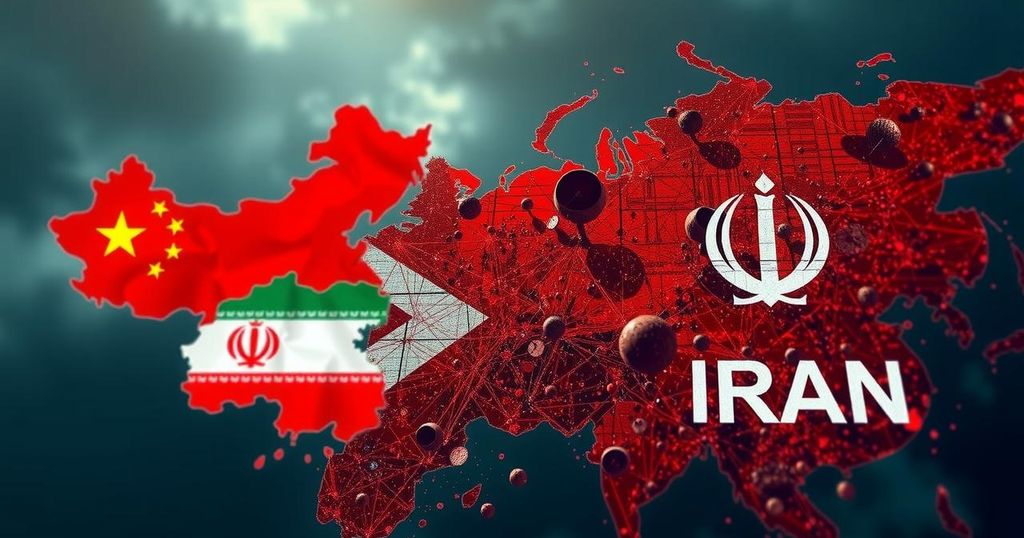Emerging Concerns Over the New ‘Axis of Evil’: A Strategic Alliance among China, Russia, North Korea, and Iran
U.S. officials are increasingly alarmed by the growing partnership among China, Russia, North Korea, and Iran, often referred to as a new “axis of evil.” This term has resurfaced recently due to military cooperation, such as North Korean troops appearing in Russia to support the war in Ukraine. Each nation is facilitating this conflict in various ways, suggesting a strategic alliance that poses significant risks to U.S. interests and international stability.
A group comprising China, Russia, North Korea, and Iran has raised significant alarm among U.S. officials, who have referred to this collaboration as a new “axis of evil.” This term echoes the rhetoric used by former President George W. Bush in 2002, which originally referred to nations accused of supporting terrorism. Recent developments, particularly North Korean troops being deployed to Russia for possible involvement in the Ukraine conflict, have intensified concerns. Additionally, recent naval drills conducted by Russia and Iran highlight the military cooperation among these nations. The support these countries extend to Russia’s military efforts has taken various forms: Iran provides missiles and drones, North Korea supplies artillery shells, and China contributes dual-use technology and various industrial goods. U.S. Defense Secretary Lloyd Austin confirmed these troubling developments during an official visit to Rome. Commenting on the situation, Congressman Rob Wittman, a member of the House Armed Services Committee, noted that the emergence of this alliance is reminiscent of the geopolitical landscape prior to World War II, where cooperation among dictatorial regimes posed significant threats. Wittman warned that the nations currently involved display capabilities that could destabilize the global order even more so than Nazi Germany did in the 1930s. As articulated by U.S. Secretary of State Antony Blinken, these countries are identified as “revisionist powers” seeking to redefine international norms. Blinken has emphasized the need for the United States to respond decisively to counter these movements since the strategic choices the quartet is making signal a willingness to challenge the prevailing international system. Analysts suggest that the cooperation among these nations is strategic and intentional, aimed at forming a self-sufficient economic bloc that minimizes reliance on Western economies. Such an arrangement could enhance their military capabilities and unify their strategic interests. China’s pivotal role in this collaboration complicates the security landscape significantly. Scholars assert that should conflict arise, particularly between China and Taiwan, it is conceivable that the other three countries might escalate their military efforts elsewhere, potentially creating less stability both regionally and globally. Ultimately, leaders and analysts alike recognize the potential for these crises to interlink, exacerbating tensions in multiple theaters of conflict worldwide. The dynamics among these four countries are primarily characterized as transactional, yet they share a common goal of undermining U.S. influence and the broader international order.
In recent months, the relationship between China, Russia, North Korea, and Iran has been under increasing scrutiny by U.S. officials. The apprehension stems from a variety of military and economic collaborations that suggest a convergence of interests among these nations, which are perceived as hostile to U.S. interests and international norms. The original designation of ‘axis of evil’ by President George W. Bush drew attention to nations accused of terrorism and aggression. In the current geopolitical context, the term has resurfaced as concerns grow regarding military support and the potential for destabilizing actions from this bloc of countries. As these four nations deepen their cooperation, the implications for global security and U.S. foreign policy become more complex and pressing.
The collaborative efforts among China, Russia, North Korea, and Iran represent a significant challenge to U.S. interests and international stability. The resurgence of the term ‘axis of evil’ underscores the seriousness of their partnership, marked by military cooperation and strategic economic arrangements. Experts warn that the interplay between these nations has the potential to escalate regional conflicts and disrupt global peace. U.S. officials are urged to recognize these dynamics and consider robust responses that reflect the gravity of the situation.
Original Source: www.voanews.com




Post Comment